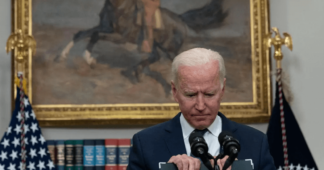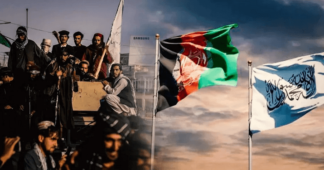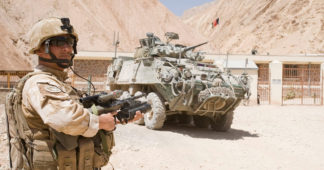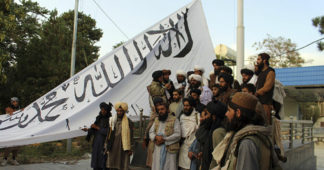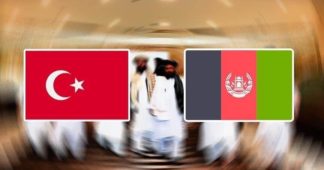26 Aug, 2021
photo: © Sgt. Glen McCarthy
Australia’s Department of Defence/Reuters
The US and the UK warned that Islamic State Khorasan (ISIS-K/IS-K) was planning attacks amid evacuations from Kabul in Afghanistan. Here is what we know about the jihadist group.
As its name suggests, the group pledged allegiance to Islamic State (IS, formerly ISIS) and has since been mostly active in Afghanistan’s eastern Khorasan Province. While IS was rapidly gaining ground in Iraq and Syria in 2015, the militants viewed ISIS-K as the caliphate’s sword in future conquests in South and Central Asia.
The group’s first emir and commander was a Pakistani national named Hafiz Saeed Khan. Former Taliban member and Guantanamo detainee Abdul Rauf Aliza was appointed Khan’s deputy.
Both Aliza and Khan were killed by US airstrikes in Afghanistan in 2015 and 2016 respectively. ISIS-K’s current leader is Shahab al-Muhajir, who reportedly was a midlevel commander with the Haqqani network, a Taliban-linked Afghan insurgent force.
According to the Washington-based Center for Strategic and International Studies, ISIS-K carried out nearly 100 attacks on civilians in Afghanistan and Pakistan throughout 2017 and 2018 in addition to around 250 clashes with the US, Afghan, and Pakistani security forces.
Last year, the group claimed responsibility for attacking the Kabul University compound, as well as firing rockets into the Presidential Palace and Hamid Karzai International Airport in Afghanistan’s capital. It was also accused of attacking a Doctors Without Borders maternity ward in Kabul. In January, Afghan security officials said they had arrested several ISIS-K members who plotted to assassinate Ross Wilson, a top US diplomat in Kabul.
A UN report published in June said that, after suffering some territorial losses in recent years, ISIS-K has a core group of around 1,500 to 2,200 fighters, which, in turn, has been decentralized into smaller cells. The group maintains communication with Islamic State and has “an active social media presence with a post-United States withdrawal period in mind,” the UN wrote.
The Taliban, which overran the majority of Afghanistan and captured Kabul on August 15, has clashed with ISIS-K in the past. Furthermore, media reports claimed that shortly after the fall of the Afghan capital the militants executed Abu Omar Khorasani, the imprisoned former chief of Islamic State in South Asia.
Western governments now fear the resurgence of ISIS-K amid the chaos created by the Taliban takeover that occurred simultaneously with the hasty withdrawal of US troops.
President Joe Biden warned on Tuesday that the Islamic State-allied group was “seeking to target the airport and attack both US and Allied forces and innocent civilians.” The same concern was voiced by UK Armed Forces Minister James Heappey, who on Thursday advised evacuees against traveling to the airport due to an “imminent” threat from ISIS-K.
Published at www.rt.com
